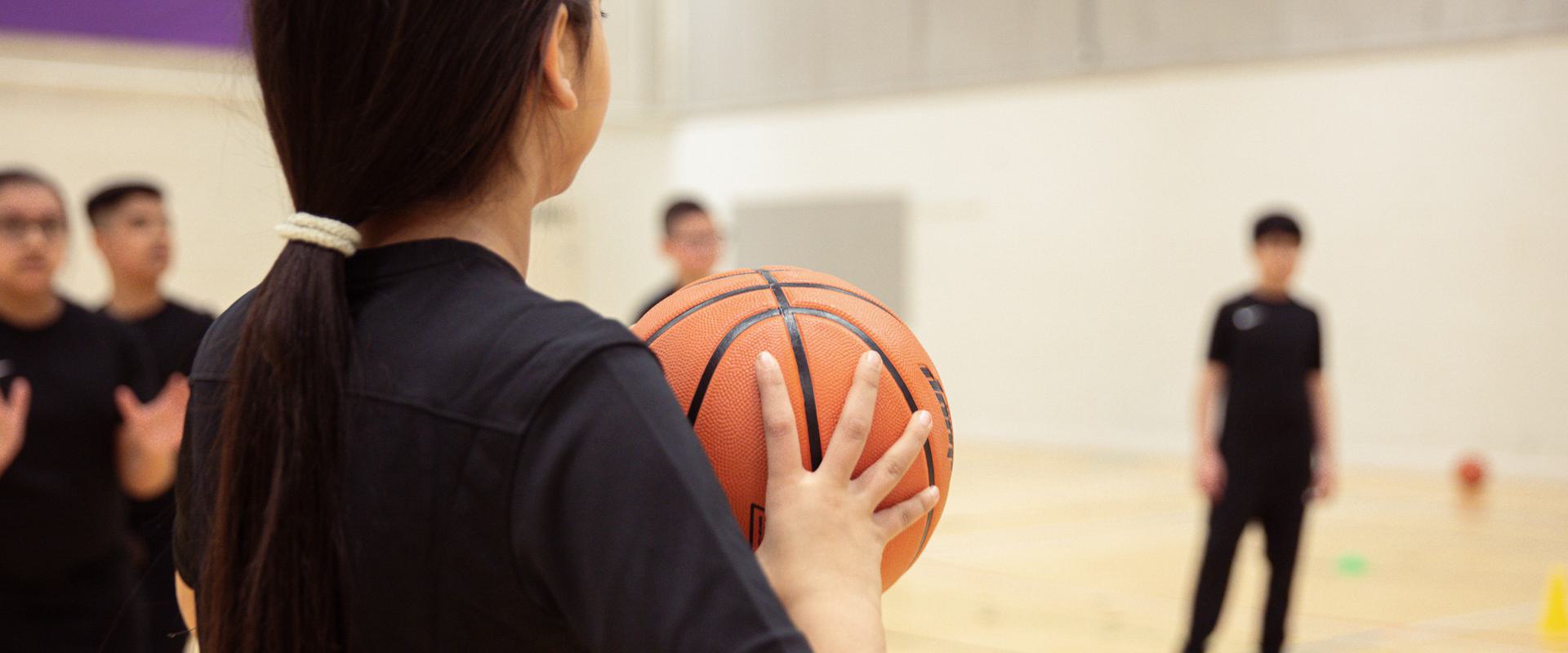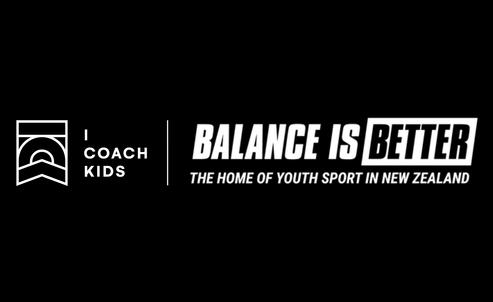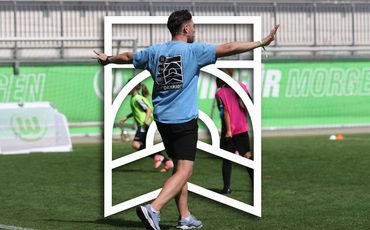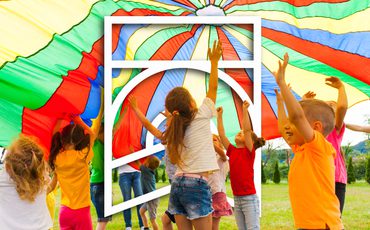
How do I support my child to maintain a love of sport, regardless of ability?

Balance is Better
This article first appeared on Balance is Better, an evidence-based philosophy that underpins Sport New Zealand’s overall approach to youth sport. ICOACHKIDS are proud partners of Sport New Zealand since 2020.
In this article The Balance is Better team respond to the following question: Help,
my boy is not as talented as other players (including his siblings) and he now
knows it. How do I help him keep a love of sport?
Question
Dear Balance is Better team,
I need some parenting advice for sport. Hope you can help as we’re not sure how to best support one of our boys.
We have two boys, 11, 10 and a daughter, 9. Our oldest son is friendly and confident, but not academic or sporty. He has two very capable younger siblings who he compares himself to. All our kids have loved sport, and play lots of different sports for fun. We don’t excel at any one sport. Our family motto with everything (including sport), is “try hard have fun”.
My question concerns my oldest son, Ben*. I am worried he will drop out of team sports. He has tried football, rugby, touch, ripper, and basketball (at least a season of each). He’s often (speaking honestly here), the worst on the team. But he always is at practice and games, and loves being part of a team.
He is now old enough that he notices his performance verse others and feels down about it sometimes. We try to focus on what he can do well at (e.g. being in the right position, being ready in support, being ready to defend), as opposed to those things many kids focus on (like scoring a try).
Our main goal for him is he keeps his happiness and confidence – and that he keeps up his love of sport.
We have wondered recently if he would be better focusing on individual sports (recently we have tried rock climbing / surfing / surf club etc).
Any advice would be gratefully accepted.
Cheers
Paul*
Answer
Hi Paul,
Great question. Based on the question you ask it sounds like you are bringing the right lenses to be a great sports parent.
From my reading there are a few things to unpack here.
The question of team sport v individual sport and their different benefits (and challenges) they present to young people
You state that you are worried that your child will drop out of “team sport”. It would be interesting to know if your worry is about your son dropping out of sport altogether or dropping away from team sports.
If it’s about dropping out of team sport, well as you are likely aware, team sports can provide great learning environments for young people to develop numerous skills, including things like social acuity and character (team work, leadership, communicating, resilience, etc). I say ‘can’ because the reality is that often these things don’t just happen by accident, rather they need the adults involved in the experience (especially coaches and parents) to be taking an approach that is conducive to supporting young people to develop these things (much like a good teacher would). To find out more about this, I recommend watching the webinar: Transforming Character Strengths into Productive Results.
Funnily enough, even in individual sports you will often find environments that still allow for social connection, and with the right support from coaches and parents these sports can still be great environments to support good social and character development in young people. Ultimately, we find that the benefits received by young people participating in sport has less to do with a sport being a team sport verses an individual sport, and more to do with the quality of the experience, which is largely influenced by the support (i.e. how do the adults, such as coaches, parents, administrators, support a young person’s sport experience?). To get a better idea of what ‘quality’ means in young people’s sport and physical activity see Sport New Zealand’s Indicators of quality sport and physical activity for young people.
What does this mean for you?
- In terms of the team sport verses individual sport, I would continue to support Ben much like you are currently, let him continue to sample many different sport and activities. The question of team verses individual sports doesn’t matter nearly as much as whether the experience is a quality experience.
- All the team sports your mentioned are invasion sports. Perhaps consider other team sports that aren’t invasion sports, e.g. volleyball, badminton, table tennis, orienteering.
The relationship between competence and motivation
Self Determination Theory is a theory of human motivation and personality that helps psychologists analyse people’s inherent growth tendencies and innate psychological needs. It helps us think about what goes into making quality sport experiences, by providing a lens to think about how we create a sport environment that supports the participant to be self-motivated and self-driven (i.e. intrinsically motivated). Ultimately, positive sport environments are conducive for supporting young people to have high intrinsic motivation for doing that activity. That is, the environment supports young people to want to keep doing the activity because they enjoy the activity itself, as oppose to other extrinsic motivators (reward, recognition, to please a parent, etc.). Research shows, that high intrinsic motivation equates to increased likelihood that a young person will continue to be involved in an activity.
Self Determination Theory states that intrinsic motivation is underpinned by the nurturing of three key psychological needs: Autonomy, Relatedness and Competency. Watch the video below for a quick introduction to these psychological needs:
One of the key psychological needs identified by Self Determination Theory is competence. There is a direct relationship between our feeling of competence (our feeling of mastery or effectiveness in a task) and our motivation to do and keep doing that task (i.e. play a sport). So, you would be right to draw a connection between enjoyment and Ben’s perceptions of his performance verses others – though I would encourage you to think about this alongside the other key psychological needs of Self Determination Theory.
- Autonomy – how much choice does Ben have with these experiences (i.e. does he get to pick what sport he wants to do? is he provided with the freedom to express himself, be creative, try new things within the sport verses feeling like he has to abide by what the coach and others say)?
- Relatedness – how much does Ben value the connection he has with others in these sports, such as peers and coaches, and how much does he feel valued by others? – this isn’t just about performance but overall social connection.
What does this mean for you?
- It’s important to consider how you and others support each of these psychological needs for your child in sport. The Good Sports Spine is a good tool to help you reflect on this. Parental support plays a critical role in developing a child’s belief in their own physical activity and sporting competence (more on how to go about this below).
- Regardless of how you and other adults best support your child, sometimes the environment propels behaviours that make it seem that performance is all that matters. Here, two key considerations for parents to think about are:
- how focused is the environment on competition outcomes (e.g. winning) – Note, some sports and activities (e.g. surfing, tramping, rock climbing) have less of a cultural and systemic focus on competition than other sports (e.g. your traditional team and individual sports), but parent and coach behaviour go a long way to setting up this environment too.
- does the sport allow appropriate grouping of young people by skill level? This becomes easier to do in the larger sports particularly in the larger regions as teams can be selected with like ability. Obviously, we need to be mindful that selection processes can be fraught with issues as well – but I sense the most important thing for is that Ben is being able to keep playing with his friends.
What’s your role in supporting you child’s development and how to best do this?
It sounds like you are taking a great approach already. With regards to facing challenges, and Ben’s own perceptions of his ability, we would advocate for you to take a growth mindset approach and support Ben and your other children to be able to develop this approach to their own learning and challenges. Taking a growth mindset approach is about viewing your (and others’) ability, character and intelligence is adaptable, and developable as opposed to being innate or fixed (which is known conversely as a fixed mindset). By virtue of holding this belief about yourself, Carol Dweck’s research on mindsets has shown that people’s development outcomes are immensely more positive.
What does this mean for you?
Growth mindset is about moving you son’s perceptions about his ability from one of “I can’t do this” to “I can’t do this yet”. Failure should be viewed as a learning opportunity. The act of improvement should be celebrated more than the outcome. Achievement and winning should be tied to effort, discipline and focus. Obstacles should be faced with persistence. Challenge should be embraced not avoided.
A good starting place for parents (and coaches) is to understand how you can tailor your praise and feedback to best support young people to develop a growth mindset.
Ultimately, I would say that Ben is well positioned to benefit from great parent support. As an administrator in sport it’s awesome to hear that your main goal for Ben is, “he keeps his happiness and confidence – and keeps up his love of sport”. I would encourage you to keep this front and centre to your approach to parenting Ben and your other children in their sporting endeavours.
*pseudonyms have been used to preserve confidentiality
For more on Balance is Better, visit https://balanceisbetter.org.nz...
Comments
Related Pages


